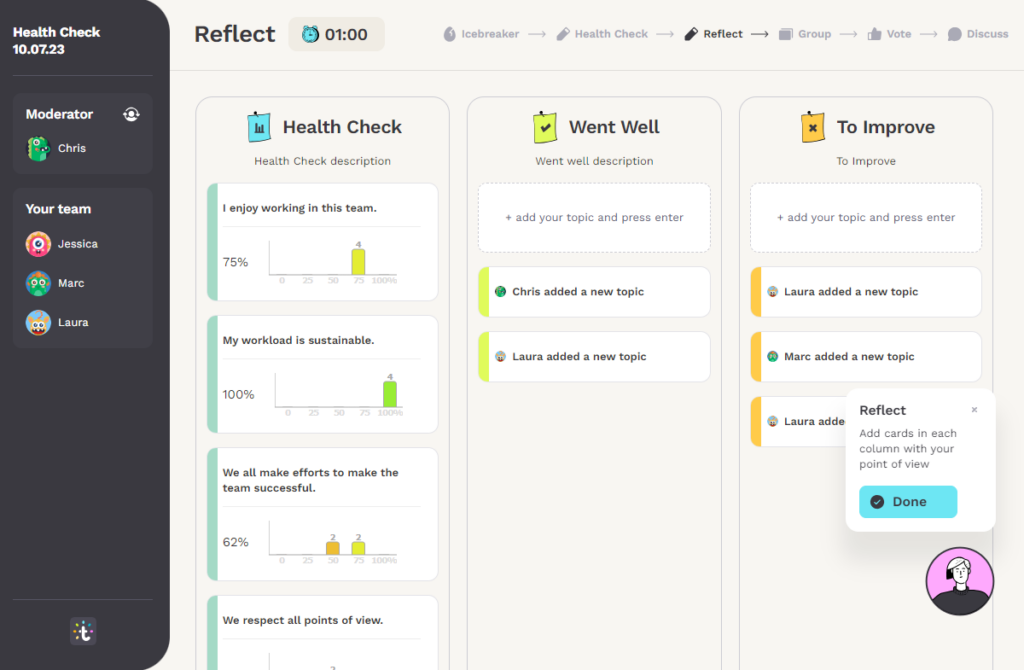
Fun and effective agile retrospectives.
A free online retrospective tool to reflect on your work, find topics, and grow as a team.
30 Days Free Trial – Clarity on Skills, Smarter Development

Use skill transparency to plan projects reliably and foster talent growth
- Gain transparency on skills
- Plan projects with confidence
- Support targeted talent development
- Personal demo included
Note: The free trial ends automatically after 30 days – no risk, no subscription.
Funny retro templates
Explore our retro templates to find ideas for your next scrum retrospective or team reflection.
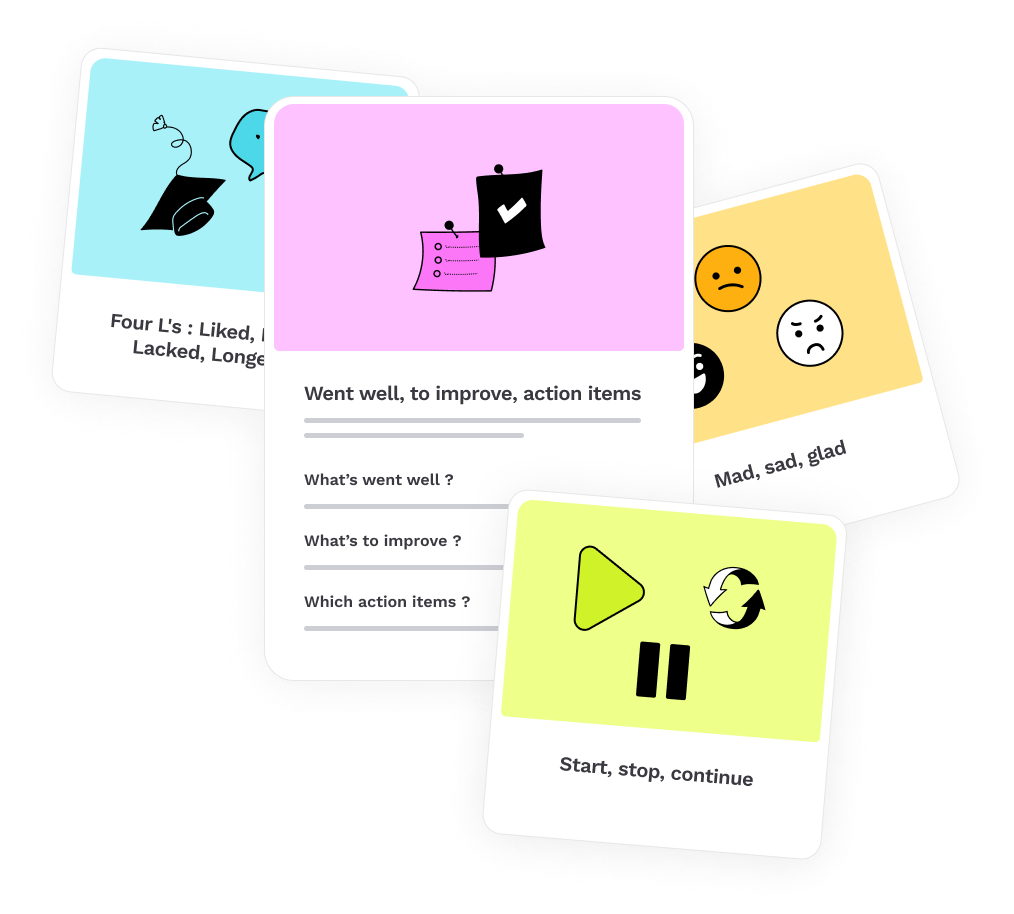
No login required
Invite the participants with a secure link. They do not need to login on Teammeter to join the retro.
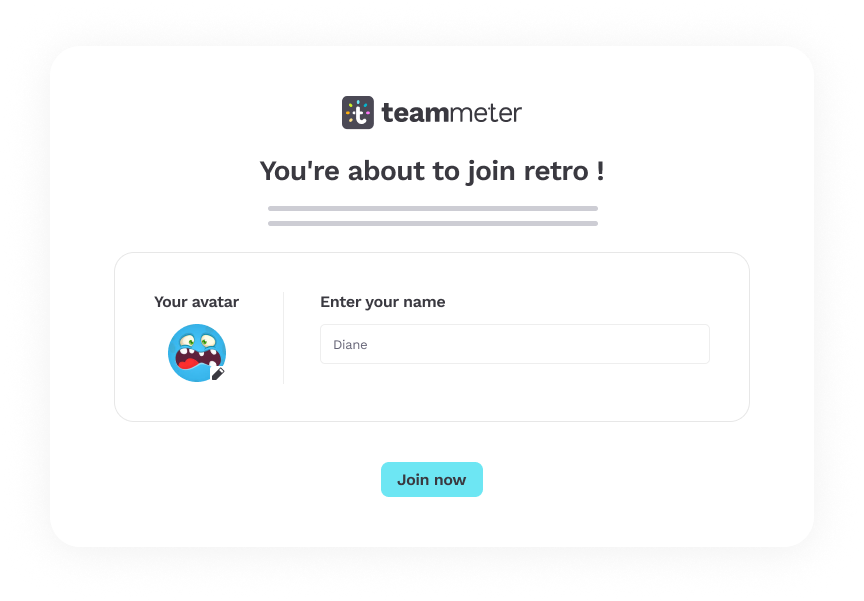
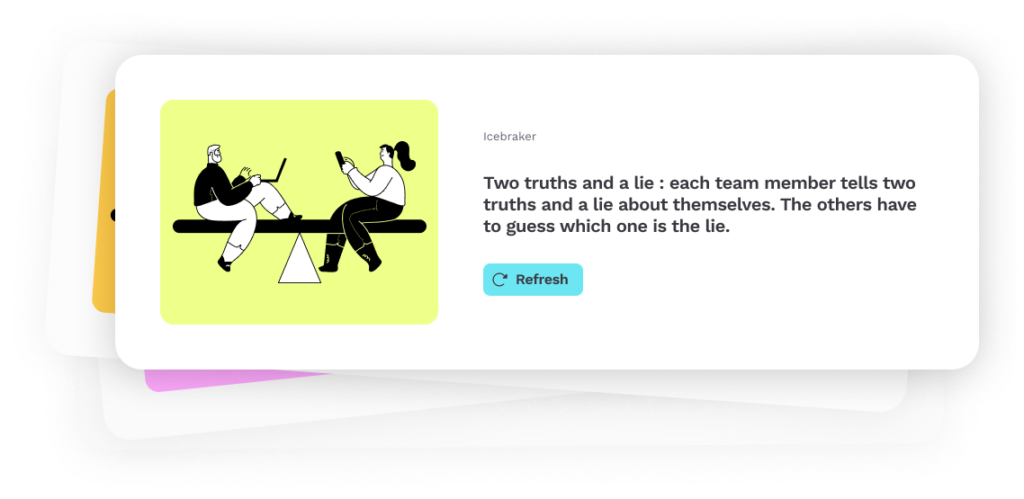
Fun ice breakers
Get to know each other better, increase your creativity and have fun with a big choice of retro ice-breakers.
Health Checks
Sometimes your team does not see every problem. Enlarge your team’s perspective by including questions from an health check to gather anonymously data about happiness, team dynamics and agile practices.
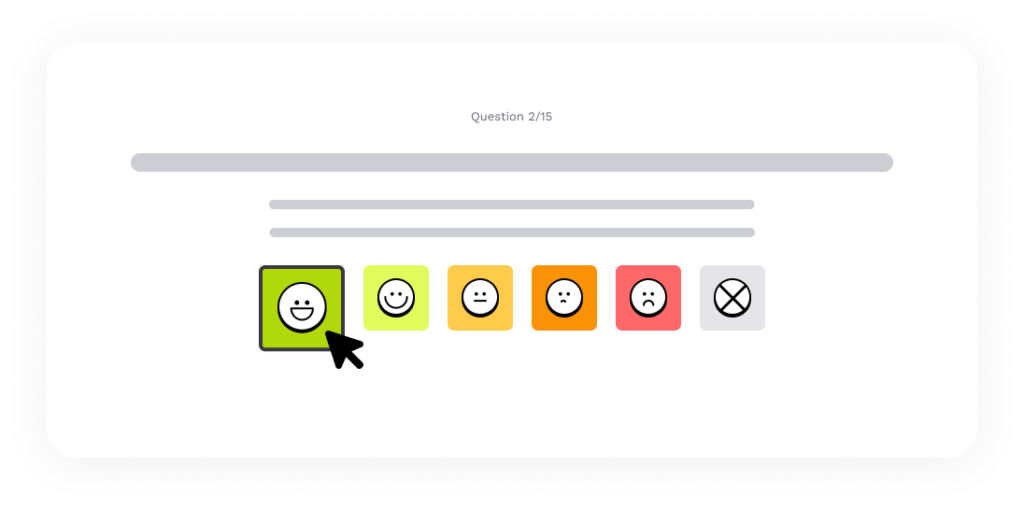

Retro assistant
Facilitating excellent retrospectives is not easy. Our retro assistant guides you in each step.
Collaborative and interactive
Easily group topics into clusters with drag & drop. Vote for the most important topics and sort them automatically.

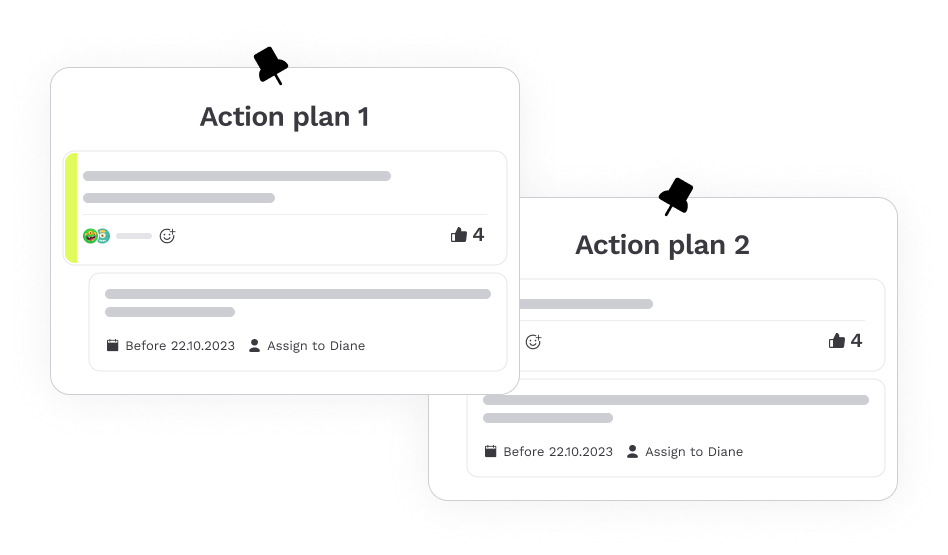
Decide actions and review them
Vote for the actions for improvement and export them to your work management software (for instance Jira).
Review the ongoing actions at the beginning of the next retrospective.
Retro Feedback
Request feedback from the participants with a ROTI voting (Return On Time Invested) to improve for next retro.
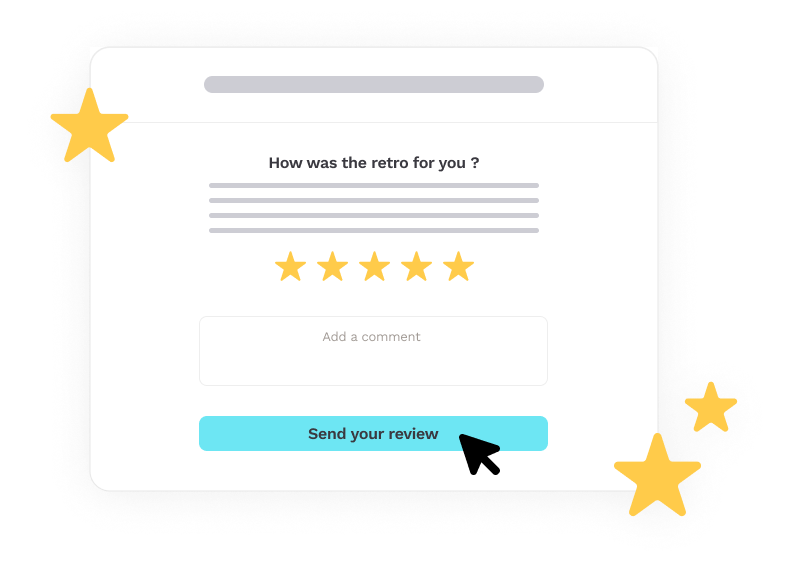
We take your data seriously

- Hosted in Germany with enterprise-grade infrastructure
- ISO 27001 certified
- Fully GDPR compliant
📬 Enter your email
Teammeter Spotlight
Each month, we’ll send you a curated selection of:
- HR insights & skill trends – fresh, actionable ideas for managing your team.
- Practical tips & best practices – what works, what fails, and what’s ahead.
- Smarter people decisions – all in one quick read.
Make better people decisions – with just one monthly update.
Agile Retrospective FAQ
What is an agile retrospective?
An agile retrospective is a regular team meeting to reflect on what went well, what didn’t, and what should change.
It encourages open communication, identifies blockers, and creates actionable steps for continuous improvement.
What makes Teammeter retrospectives different from Miro, Mural, or whiteboards?
Unlike whiteboarding tools, Teammeter offers structured, guided retrospectives out of the box – no setup or moderation skills needed.
Each session follows a proven flow, includes interactive elements, and ends with documented actions and follow-ups.
It’s focused on team development, not general collaboration.
Do participants need to log in or create an account?
No. Participants join with a secure link – no accounts, no friction.
This makes it ideal for mixed teams, guest facilitators, or external stakeholders.
How do we track results and ensure follow-up?
Every retrospective ends with concrete action items. These are tracked in the system and automatically reviewed in the next session.
Optional JIRA integration helps push tasks directly into your workflow.
Can we use our own retro formats or branding?
Yes. You can choose from a library of proven templates or customize your own.
You can also adjust language, tone, and themes to match your company culture.
Is it secure and GDPR-compliant?
Absolutely. Teammeter is hosted in Germany, ISO 27001 certified, and fully compliant with European data protection regulations.
No data leaves the EU. Learn more on our Legal Notices page.
